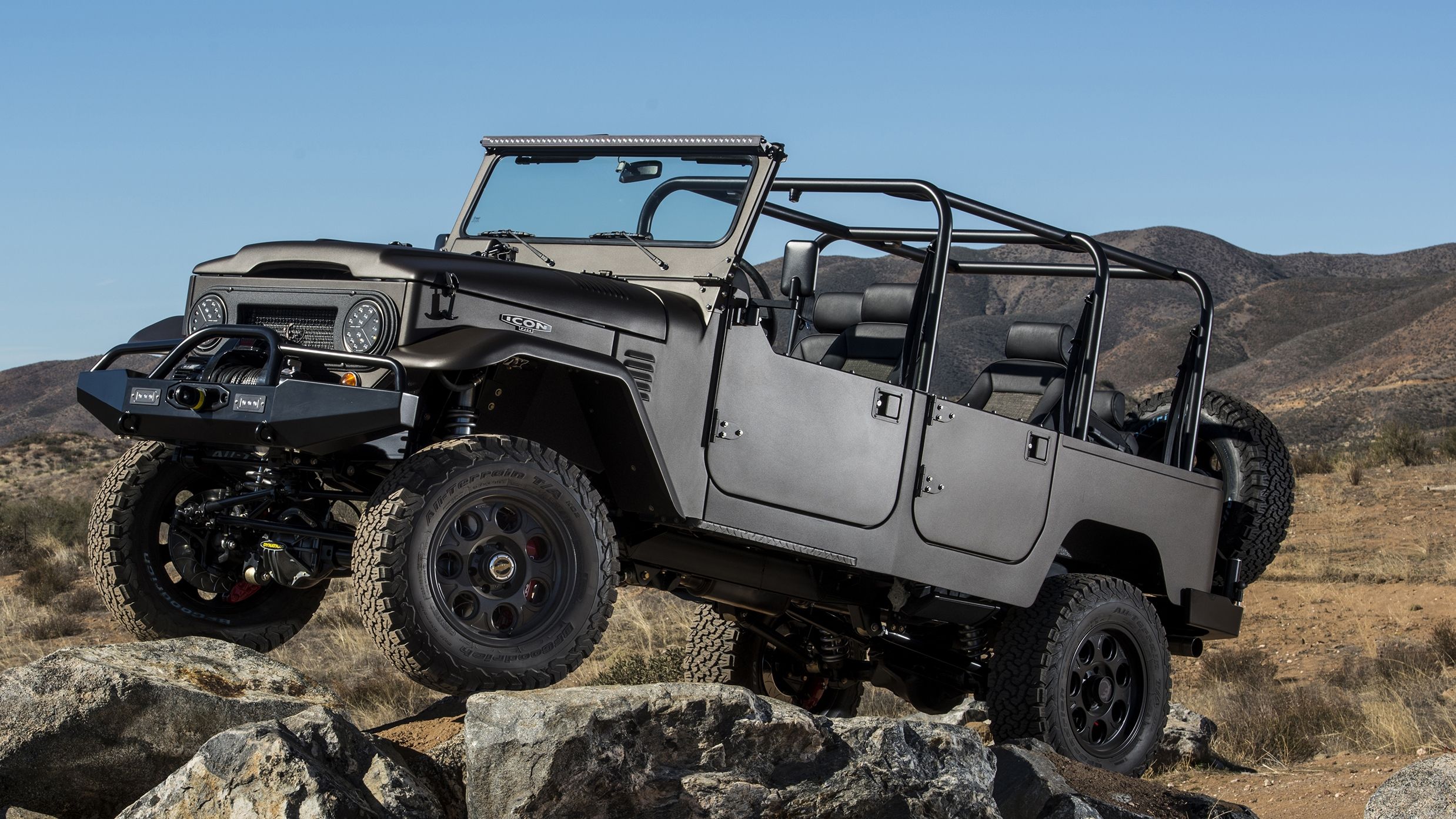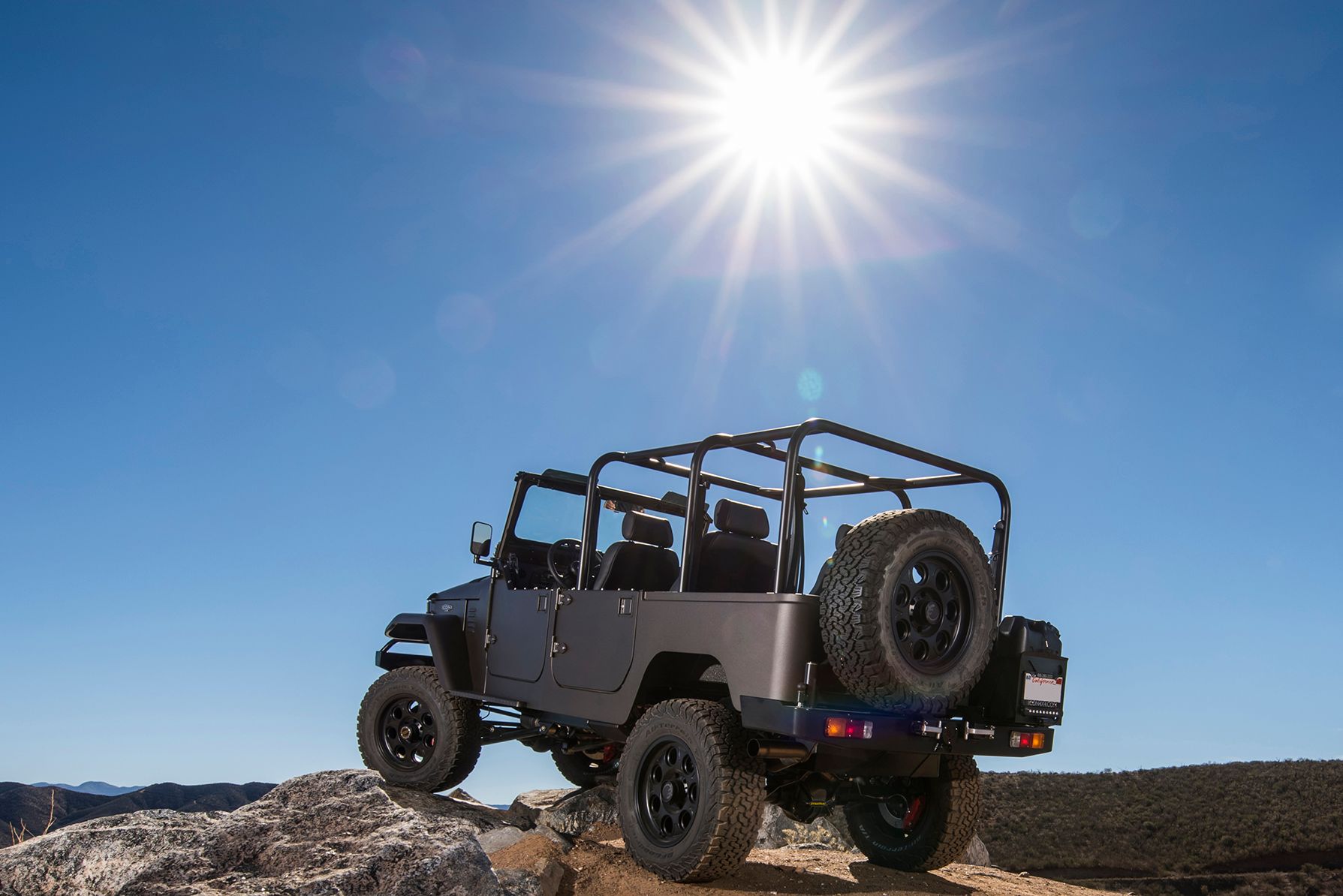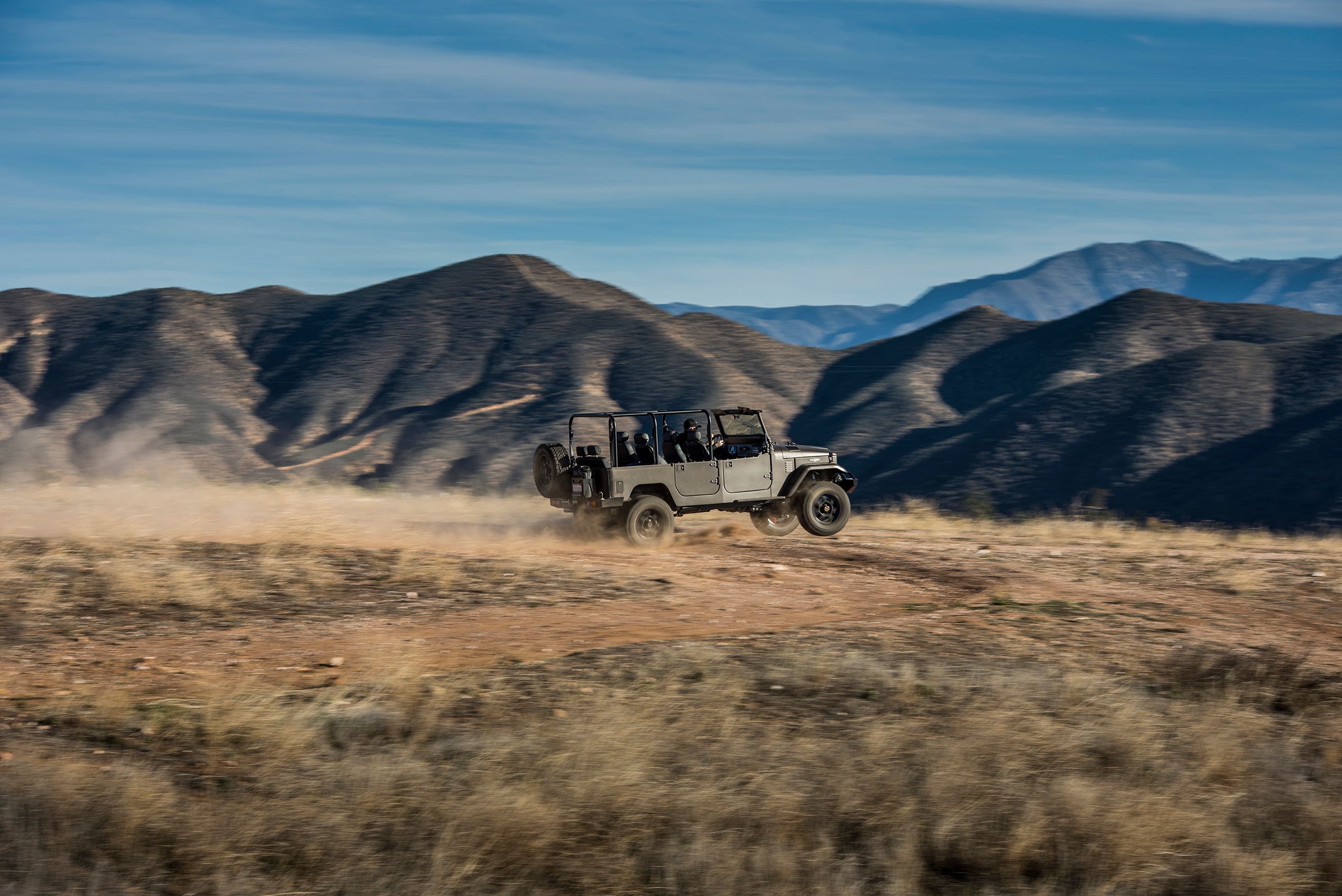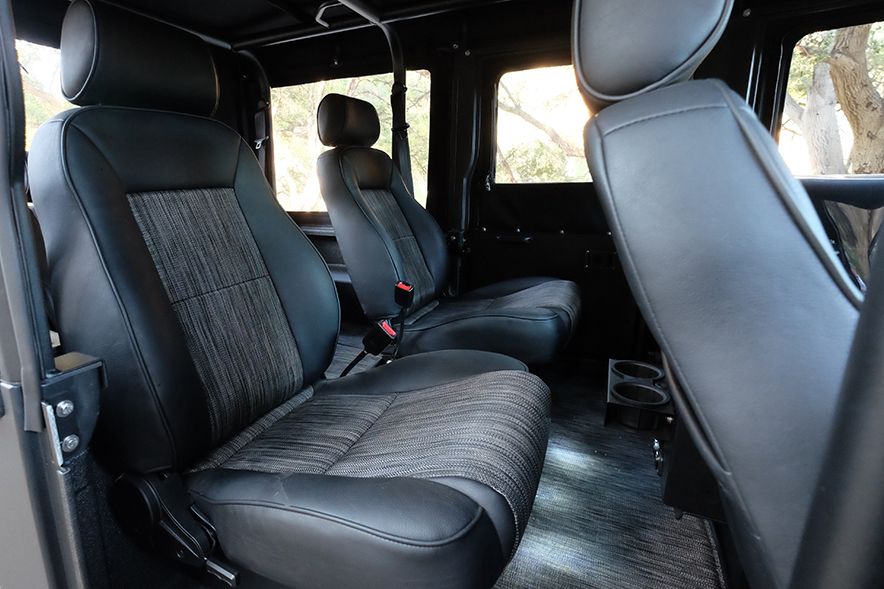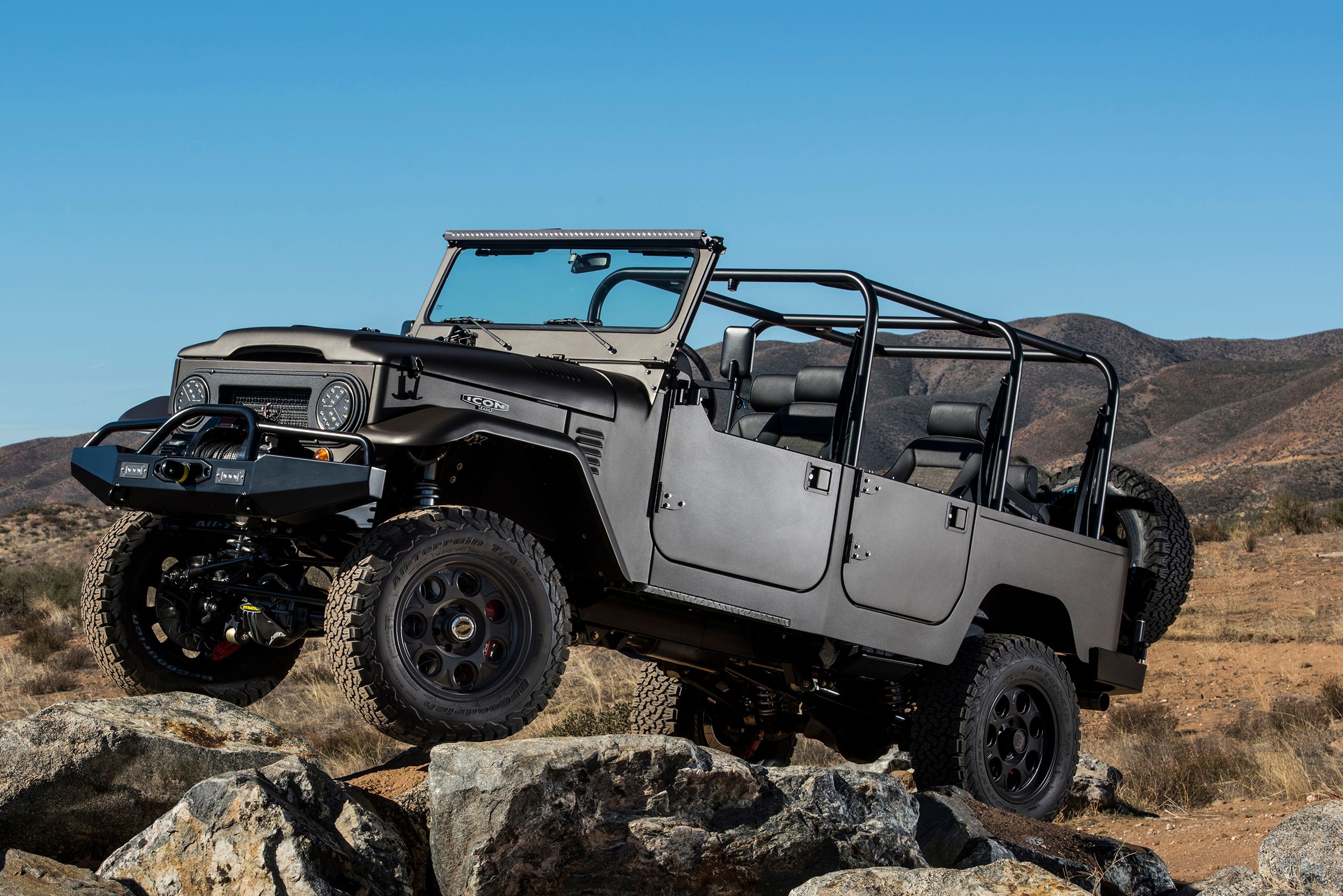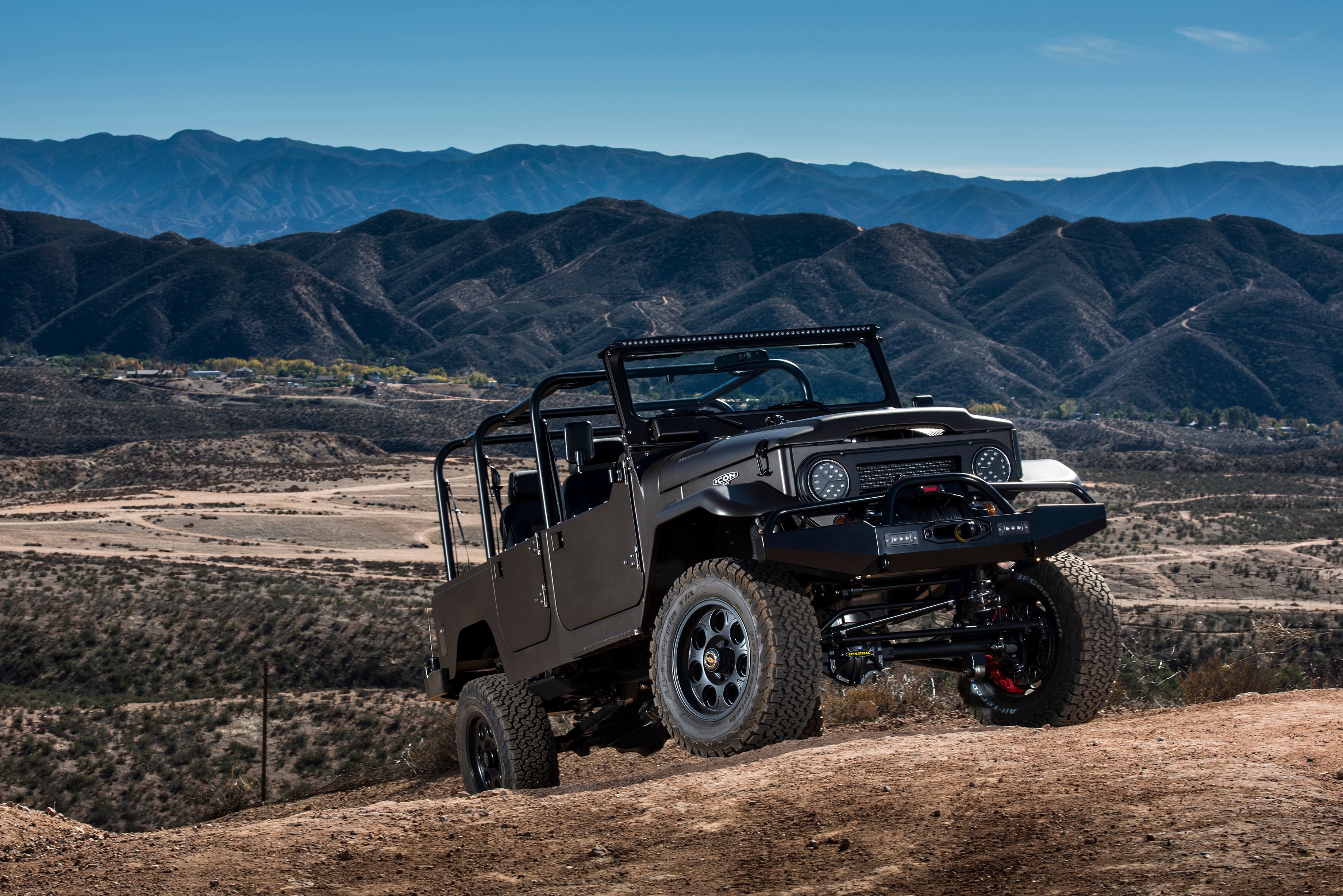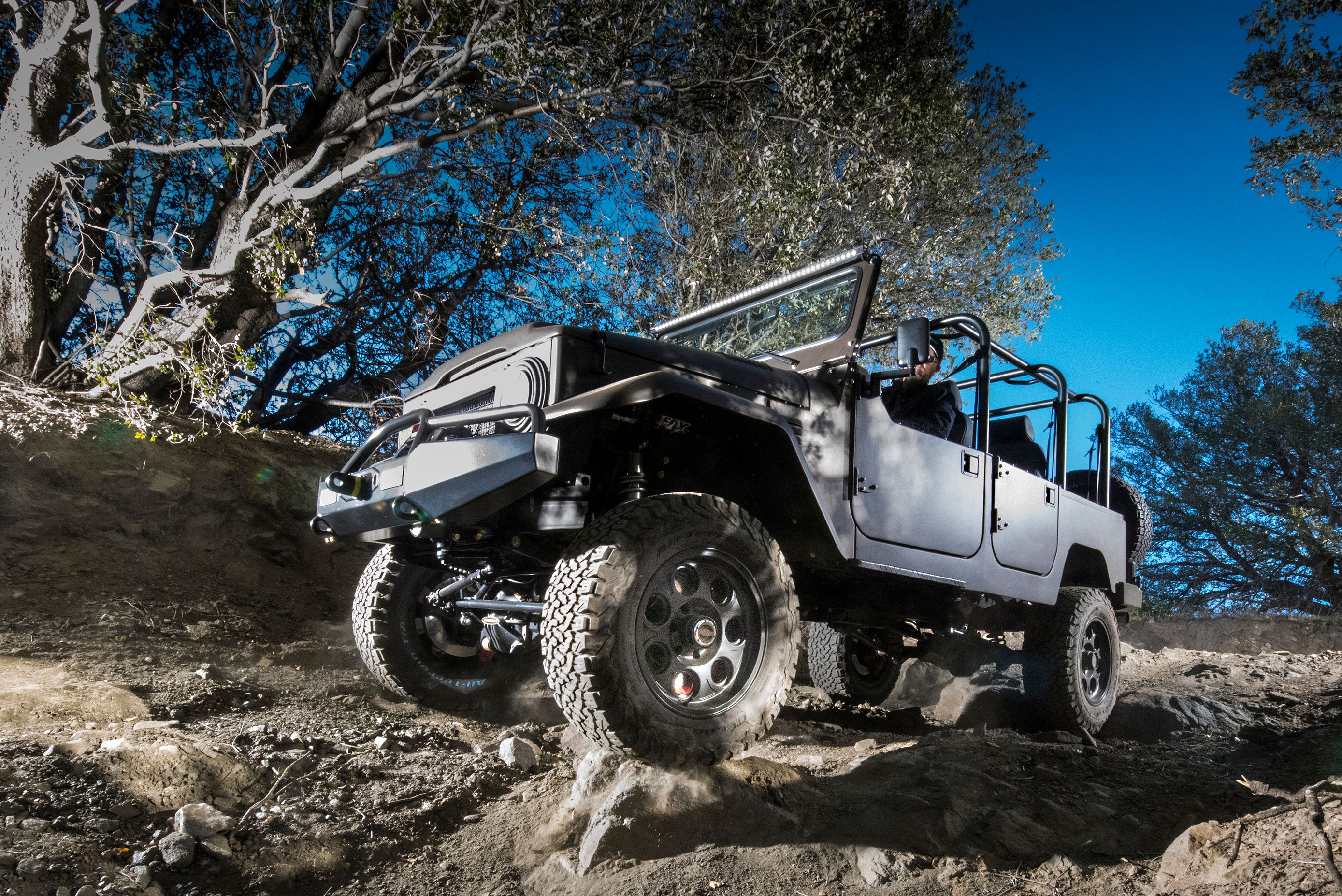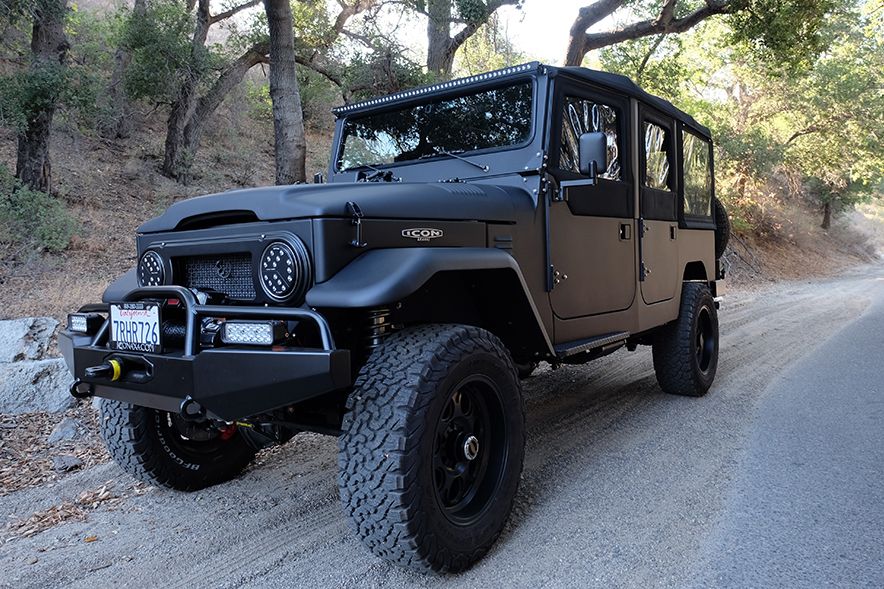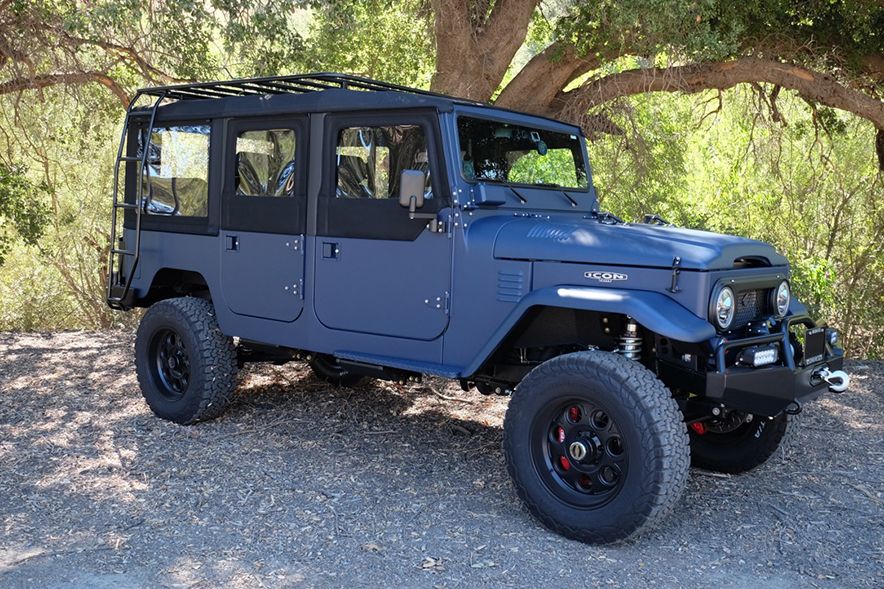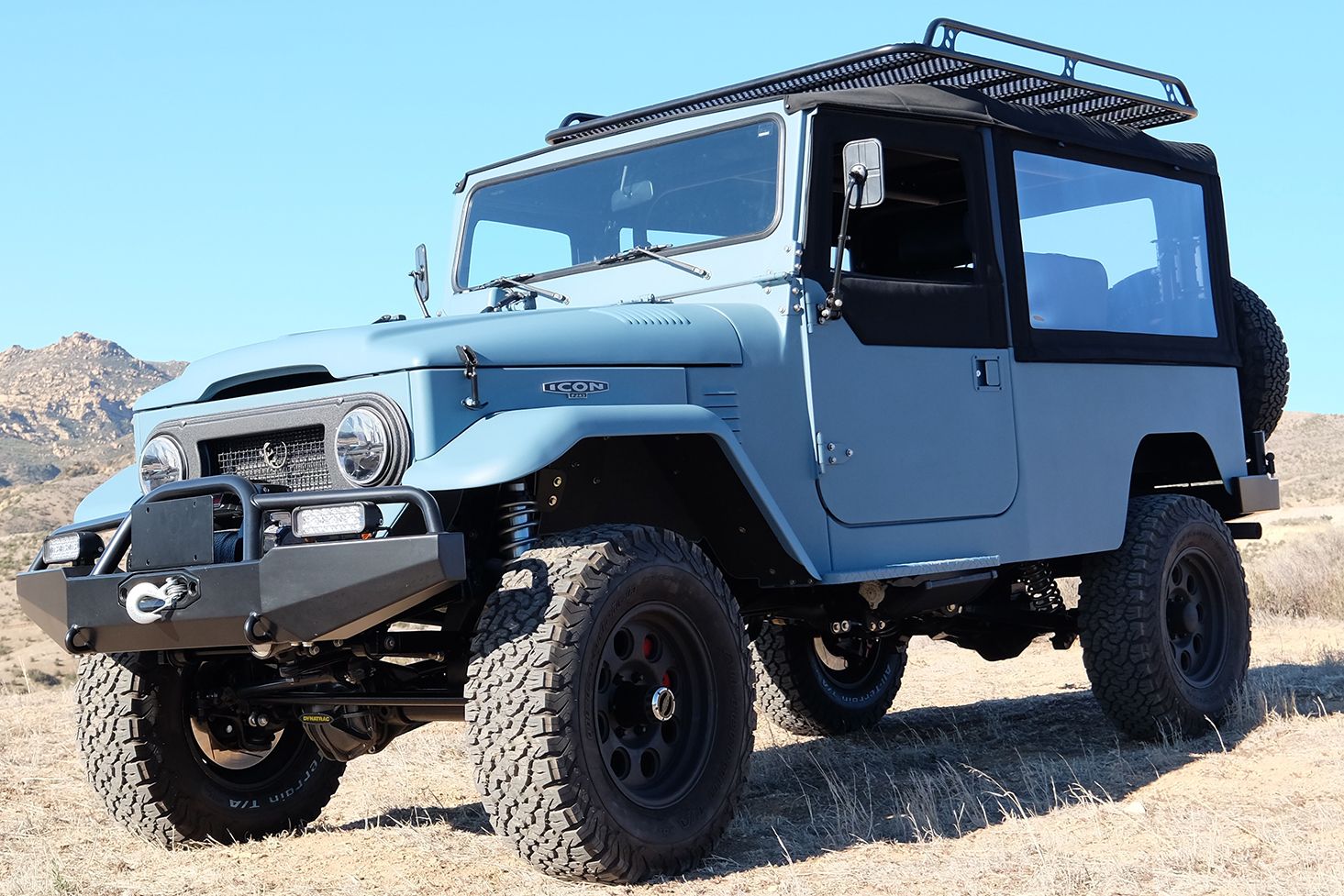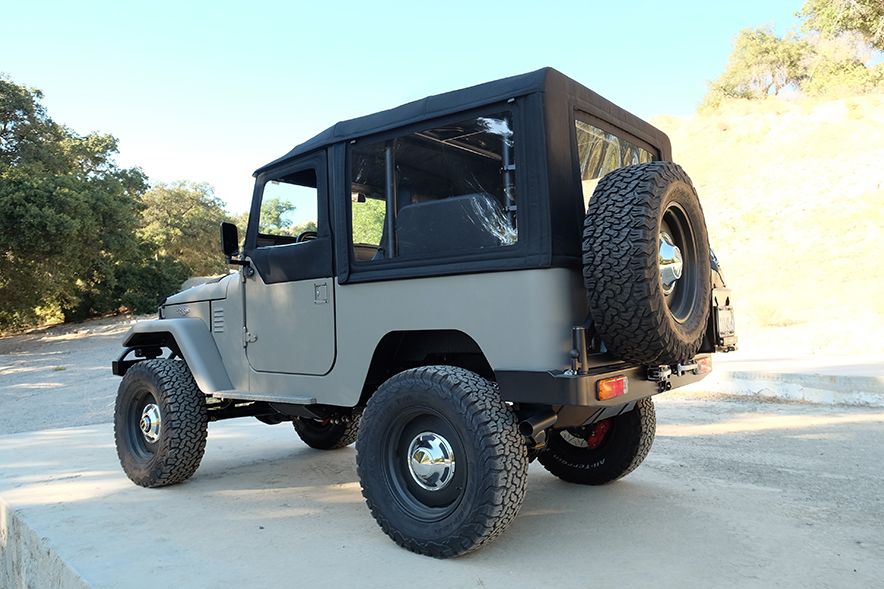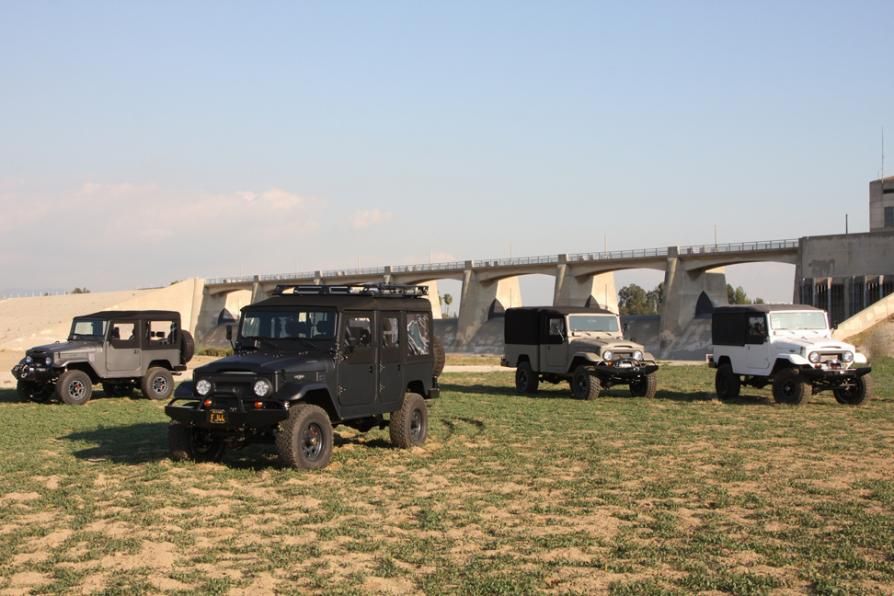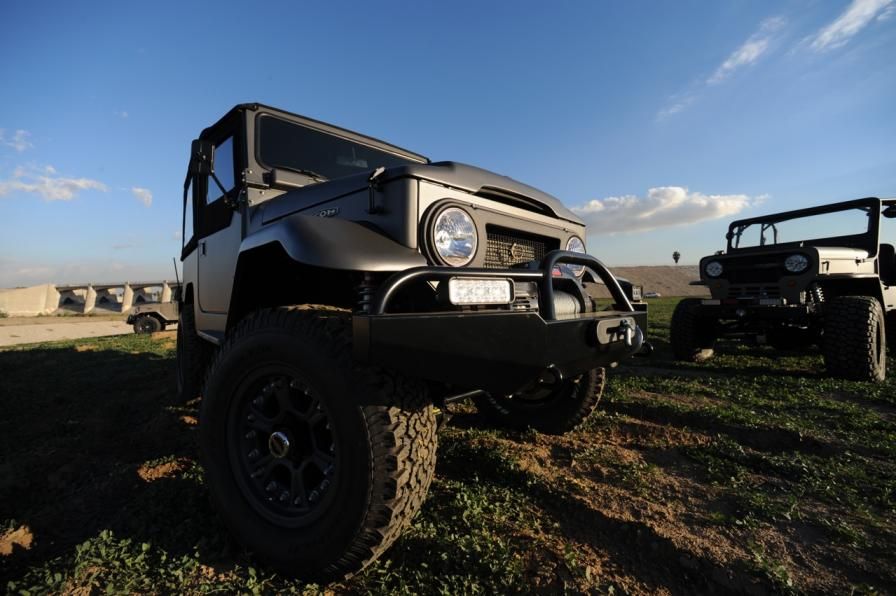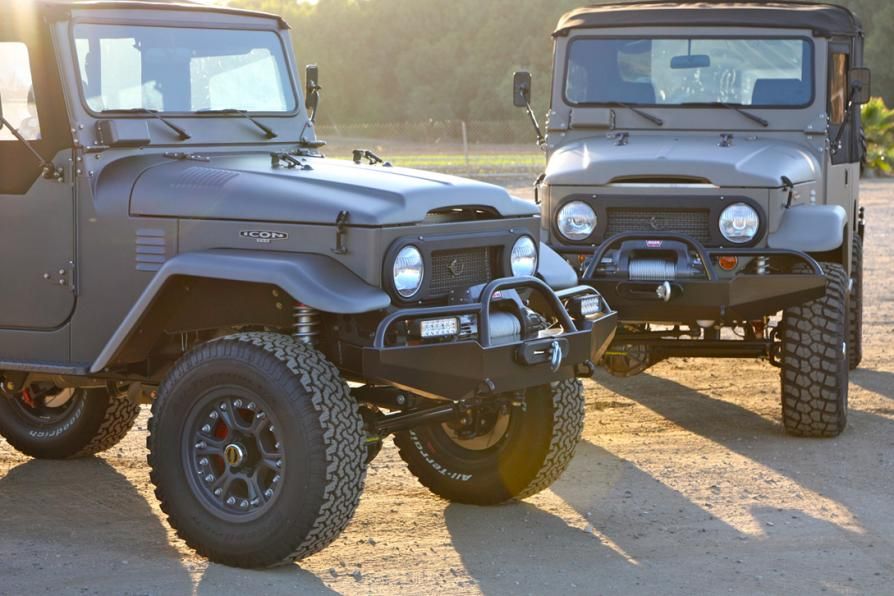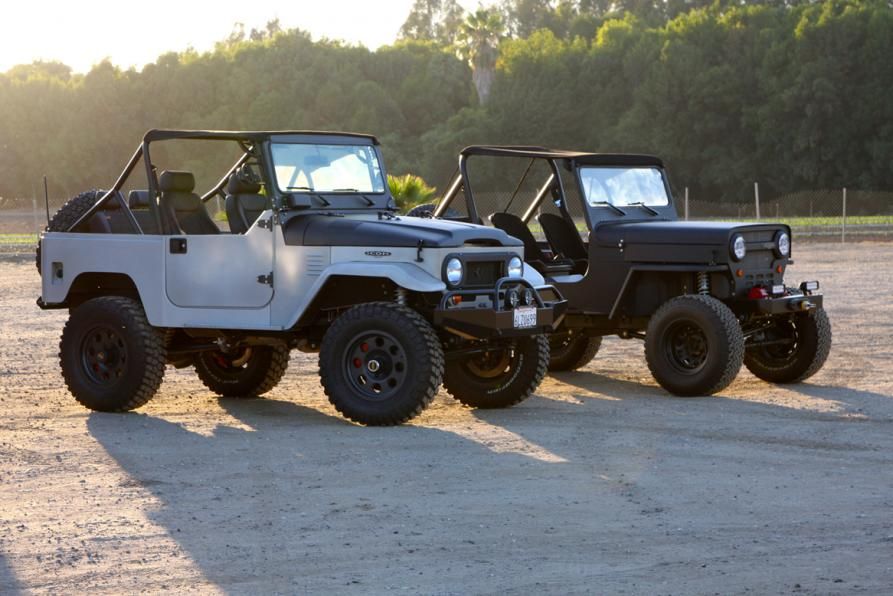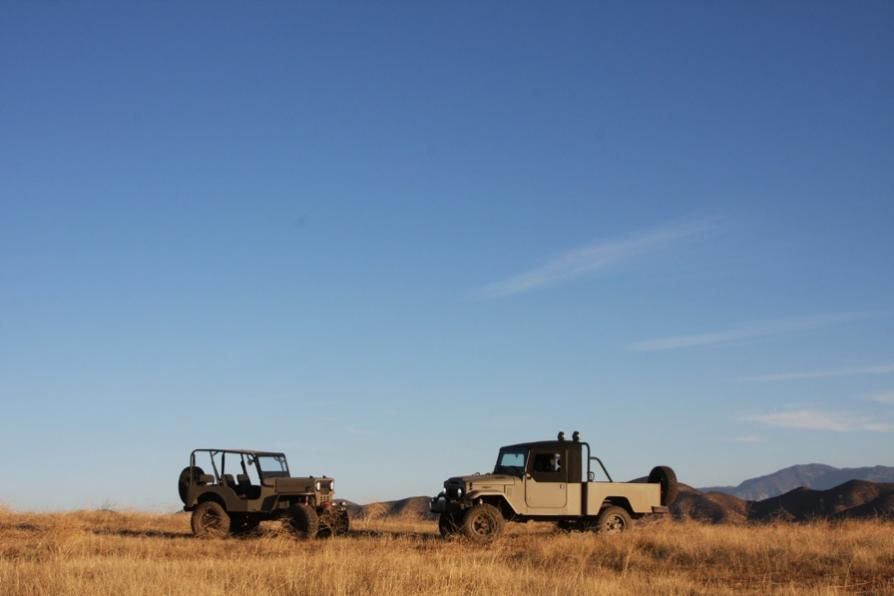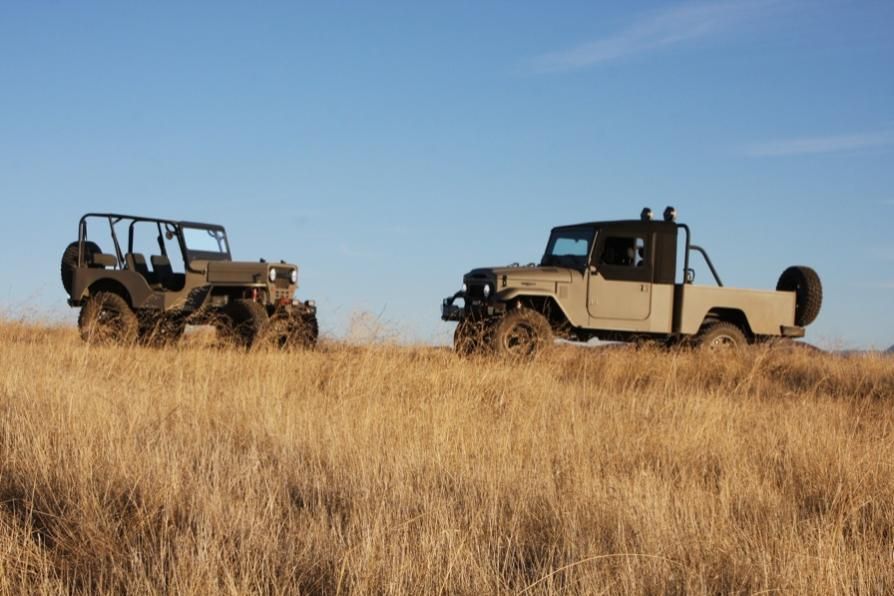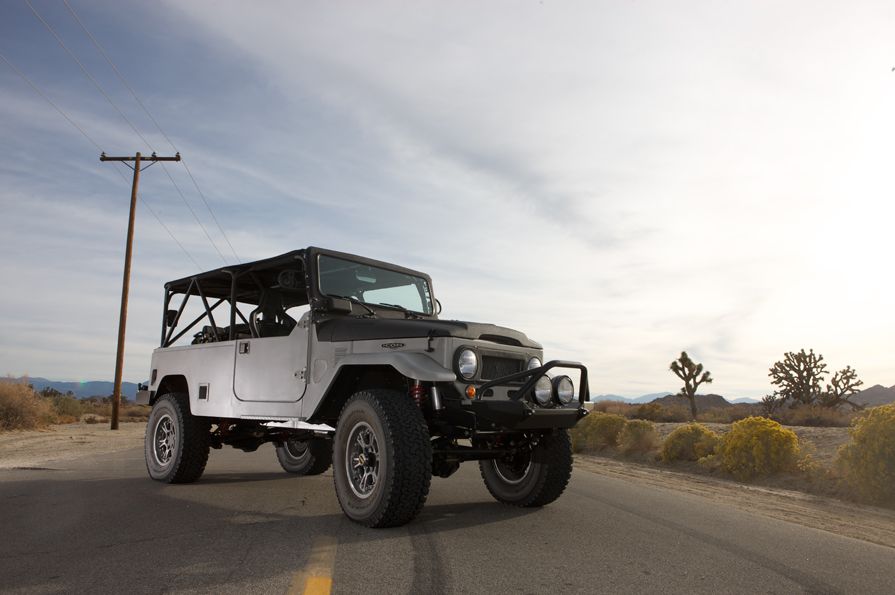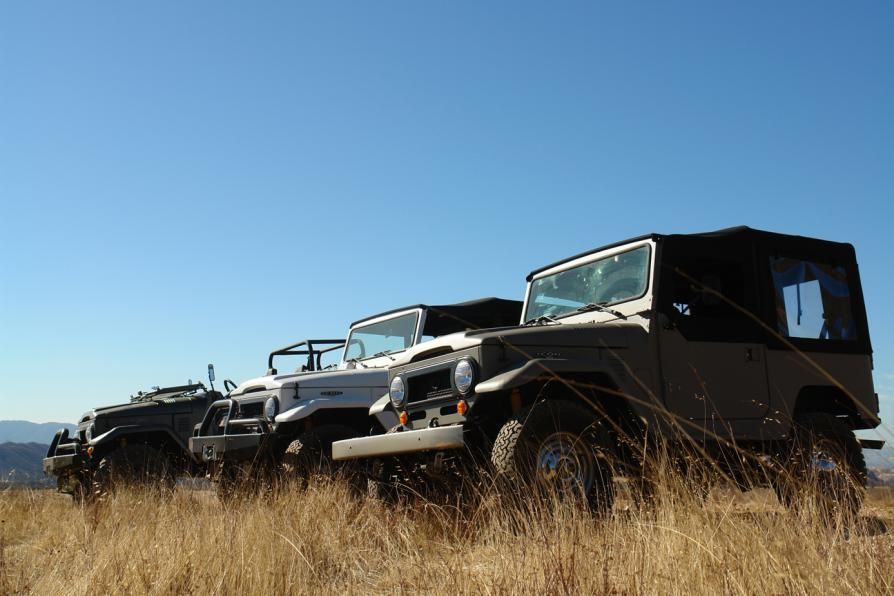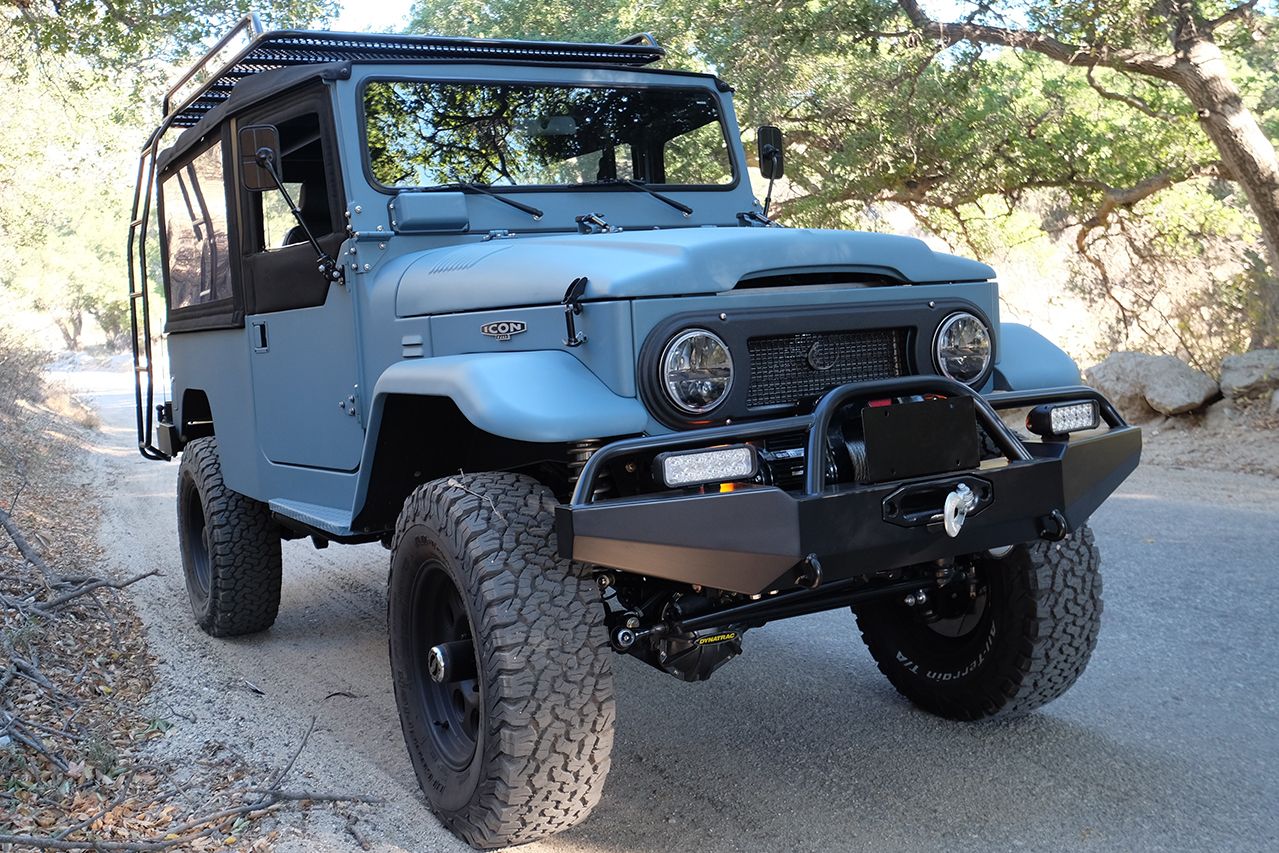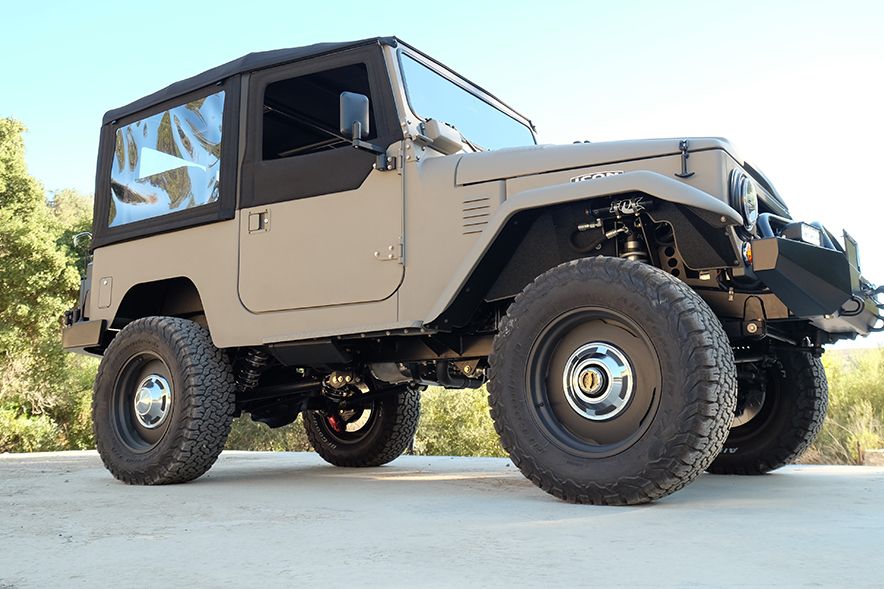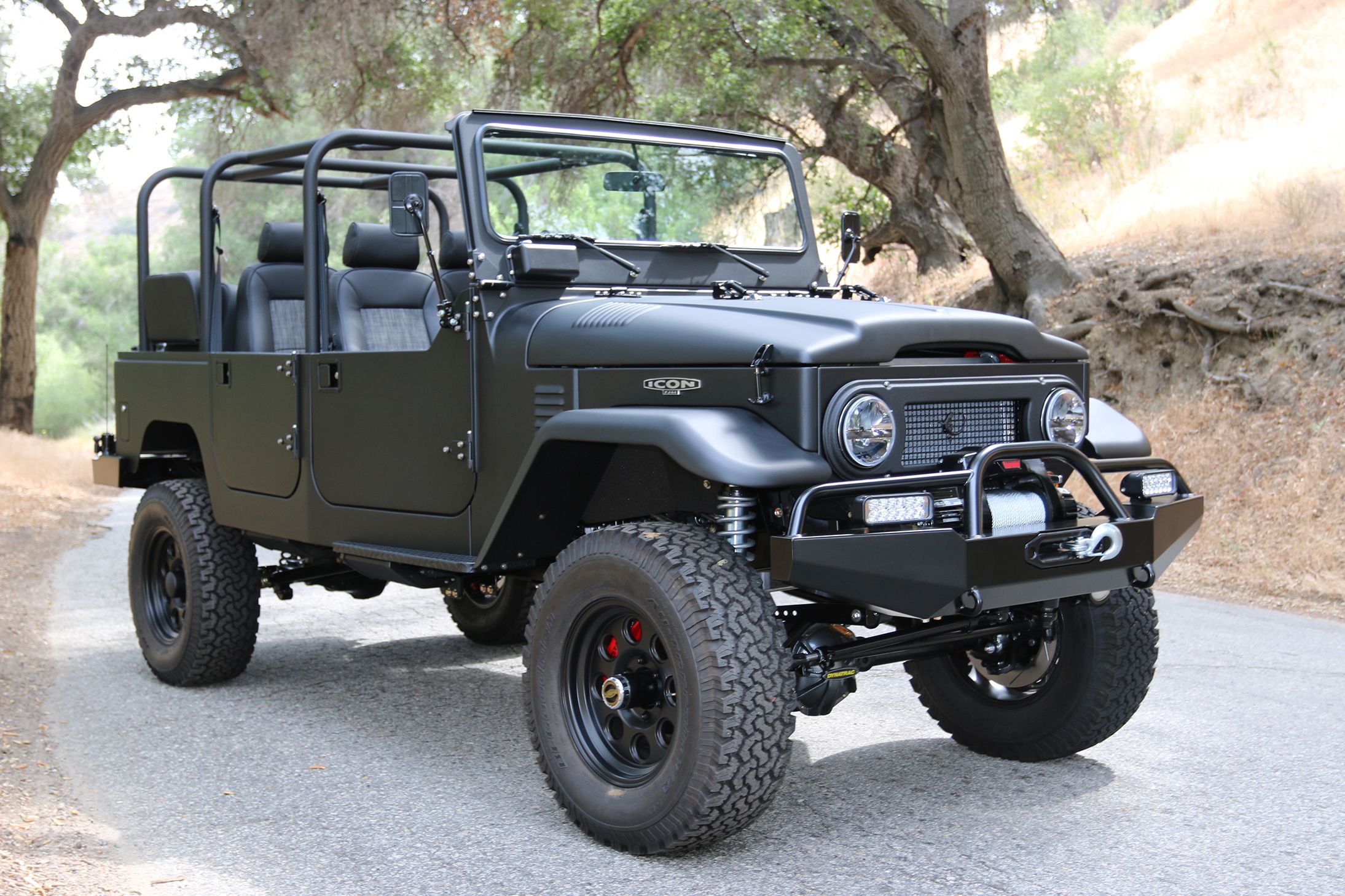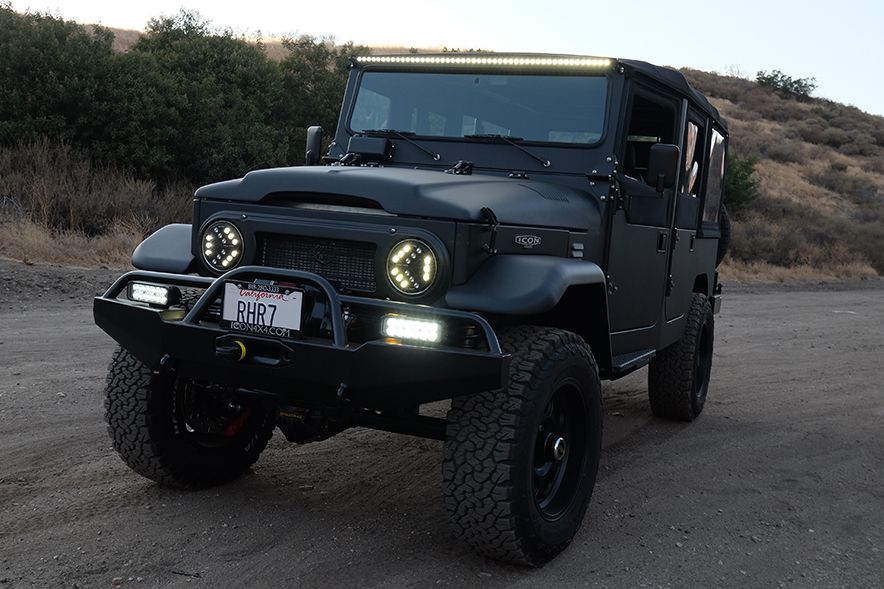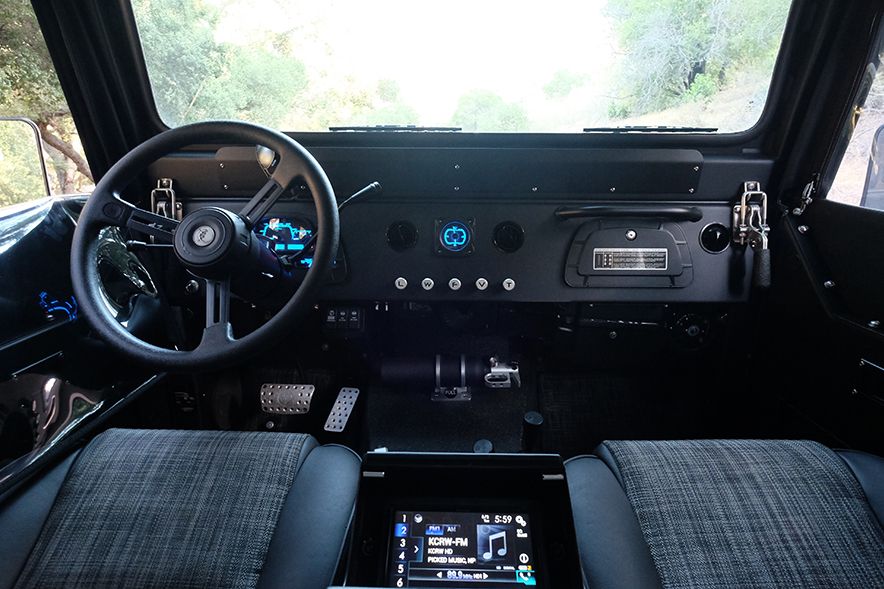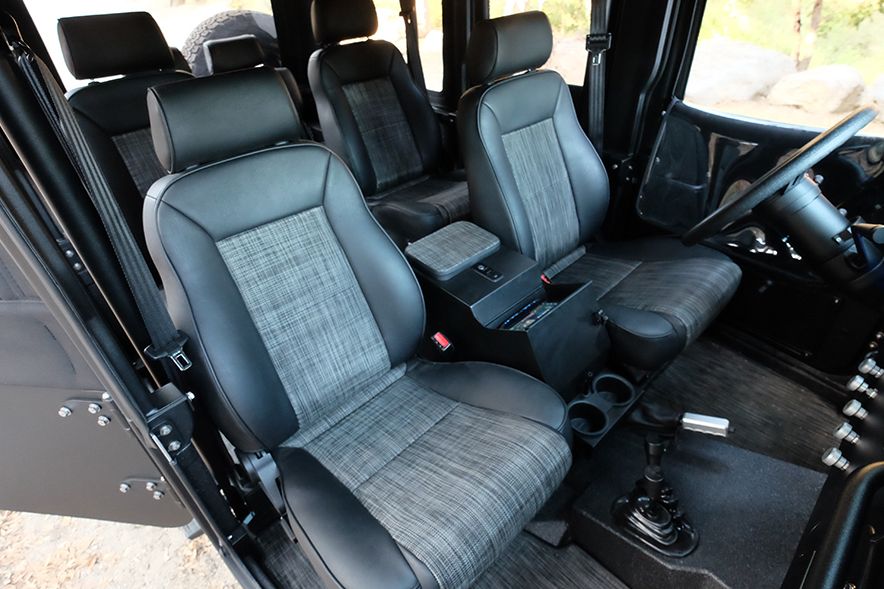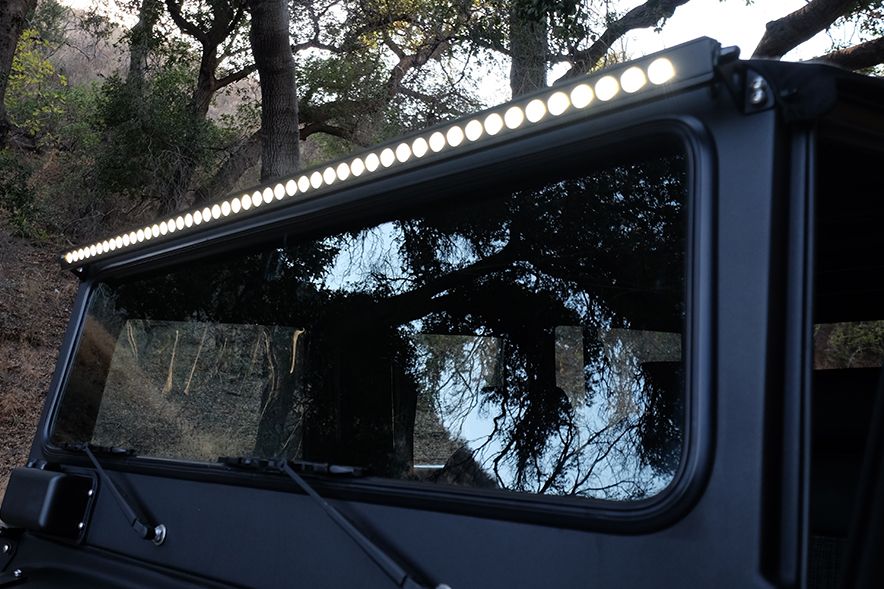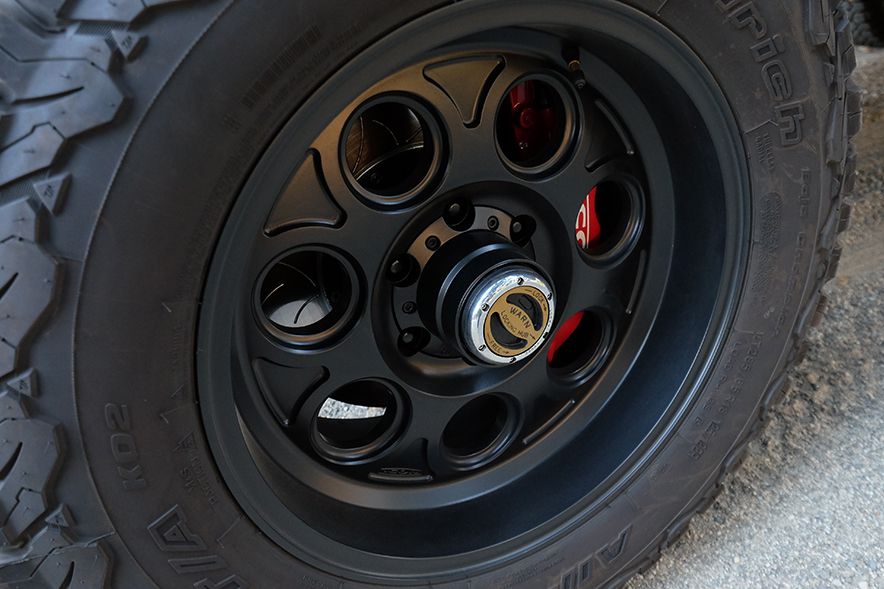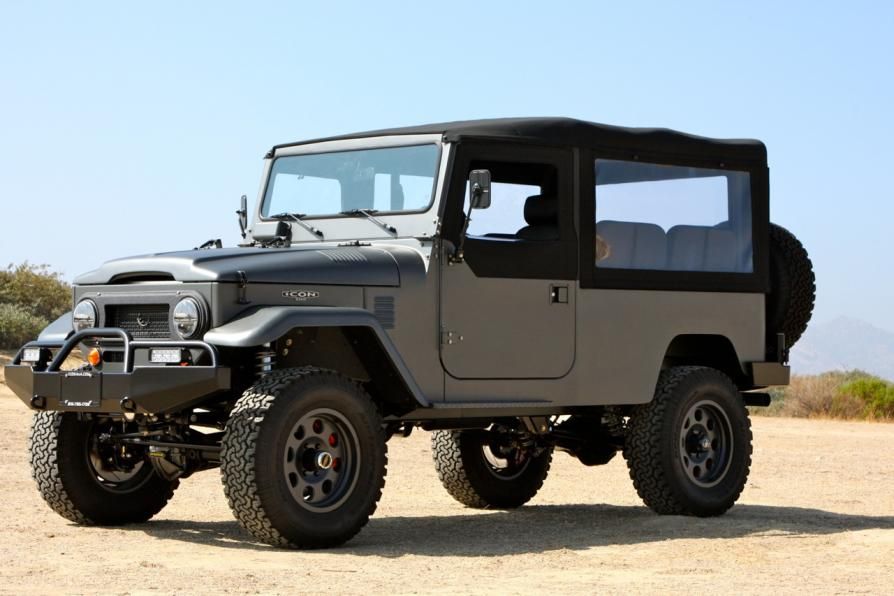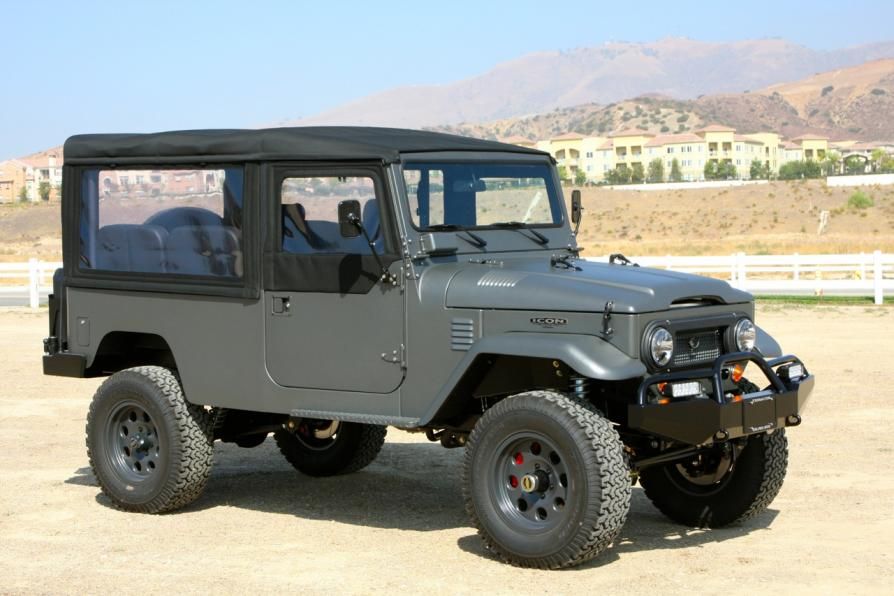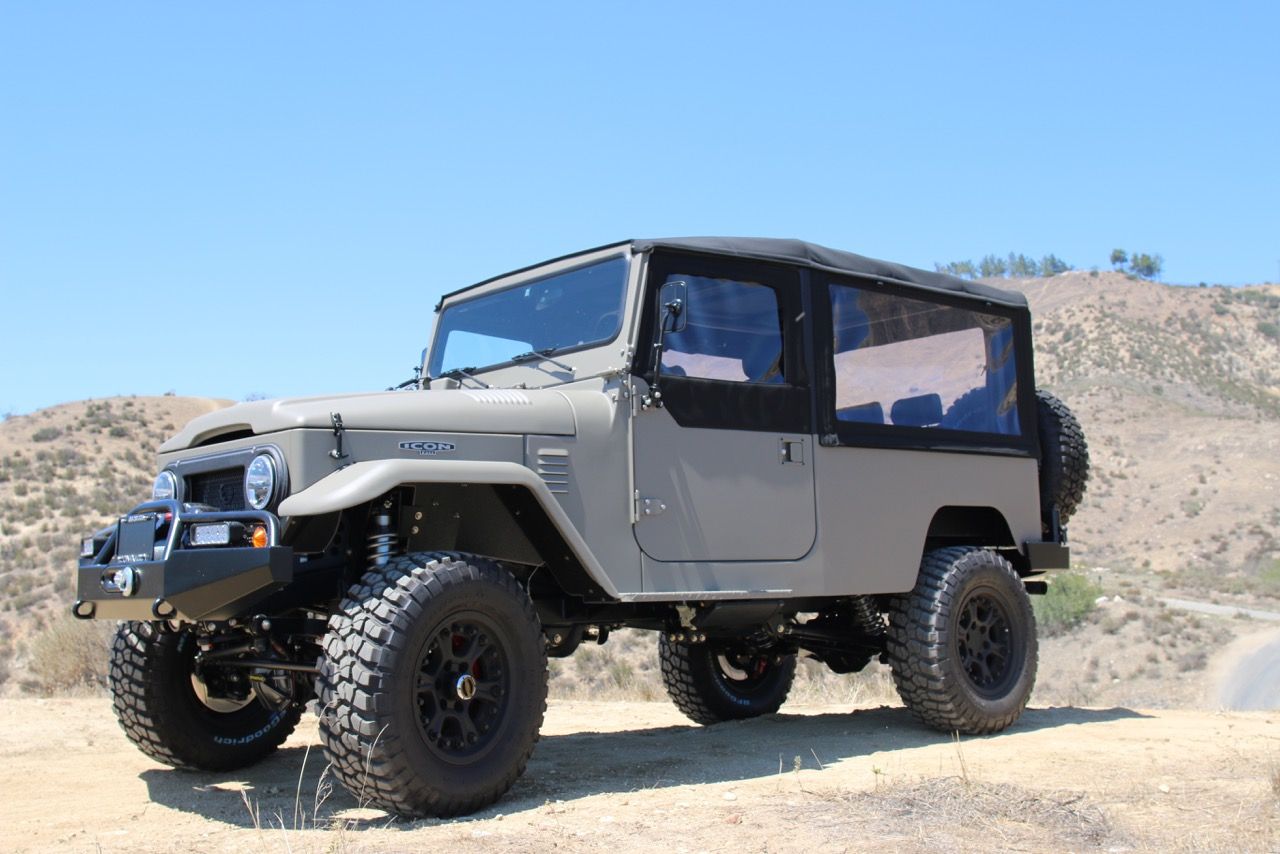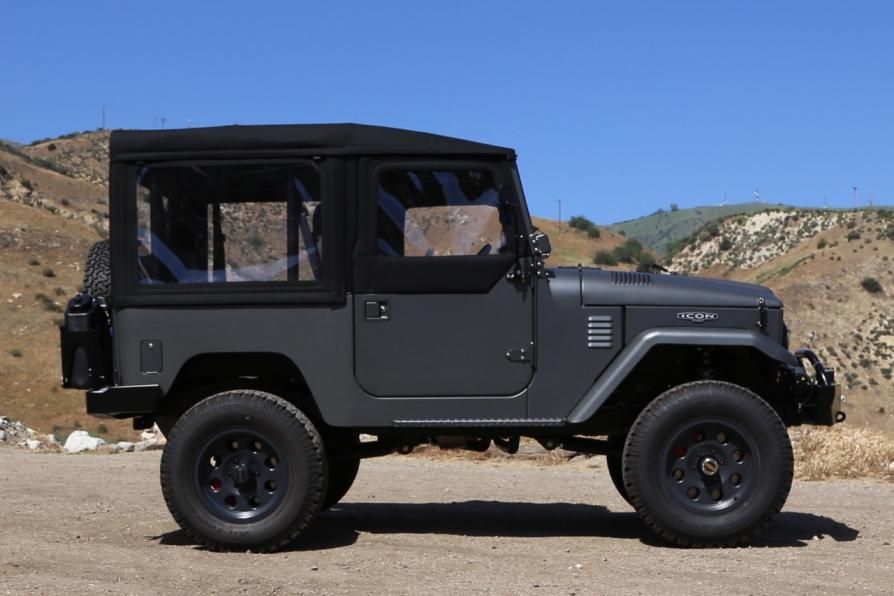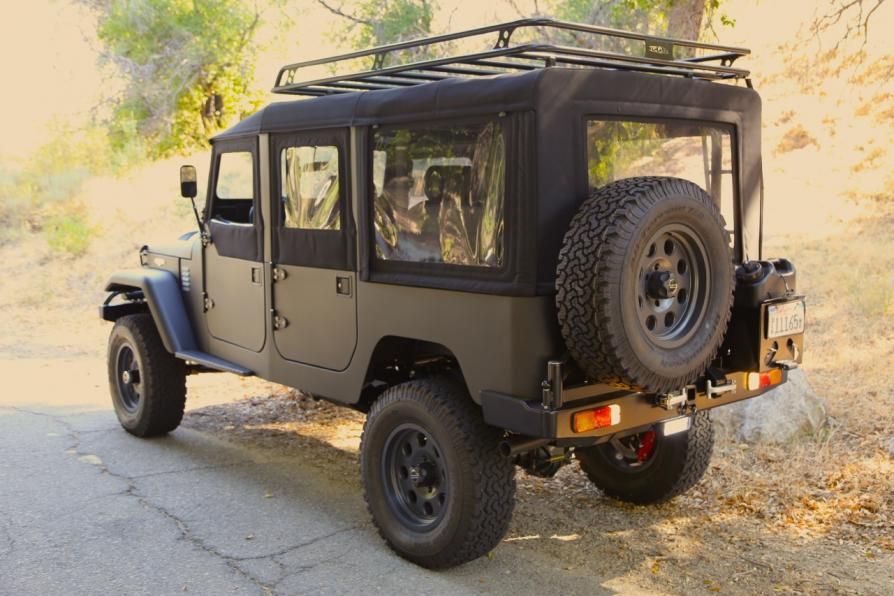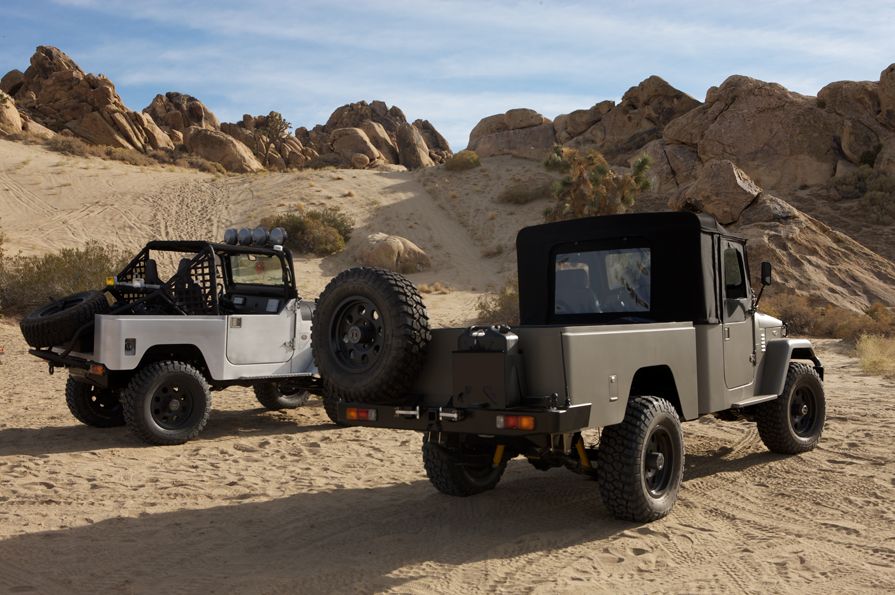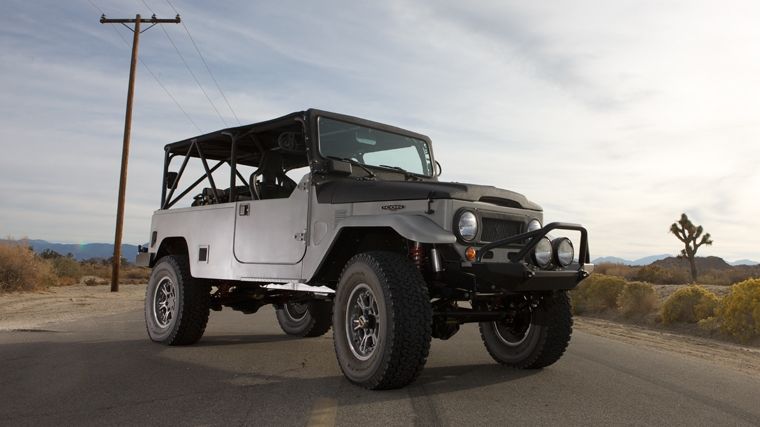Jonathan Ward has been working with Toyota FJs for well over a decade. His company, Toyota Land Cruisers (or TLC for short), specializes in buying, restoring, selling, and servicing Toyota SUVs ranging from the venerable FJ40 up through modern stuff like the FJ Cruiser. In fact, TLC was contracted by Toyota to build the first three FJ Cruiser prototypes ahead of its 2005 debut. But TLC isn’t Ward’s only operation. ICON has gained quite the notoriety in recent years by building high-dollar, custom vehicles for discerning customers. The bread-n-butter of ICON’s menu is the original Toyota FJ.
ICON offers four versions of its FJ series, aligning with the original FJ models produced by Toyota from 1960 to 1983. The FJ40 is the iconic, two-door Jeep CJ competitor, the FJ43 offers two doors with a longer wheelbase, the FJ44 uses the 43’s wheelbase but adds four doors, and the FJ45 is a two-door pickup variant. Each FJ ICON builds is for a specific customer looking for a rugged and reliable vehicle that’s built well enough to tackle daily driving. We’re taking a deep dive into ICON’s FJ lineup here, so keep reading for specifics.
Continue reading for more information.
2017 Toyota FJ by ICON
- Make: Array
- Model: 2017 Toyota FJ by ICON
- Engine/Motor: V8
- Horsepower: 430
- Torque: 440
- Transmission: six-speed automatic
- [do not use] Vehicle Model: Array
Exterior
ICON preserves most of the FJ’s original styling. Regardless of it being a two-door, short wheelbase FJ40, or the four-door, long-wheelbase FJ44, the Toyota’s bodylines look as they originally did. However, instead of steel, the body is made from high-grade aluminum, save for the steel hood sourced directly from Toyota. ICON offers 10 colors ranging form Volcanic black to Mayan Sun orange. The color isn’t painted on, though, but rather is baked into the military-spec polyester-Teflon hybrid powder-coat. It’s far tougher than paint and resists scratching, chipping, and pealing.
There are three wheel choices. They include an 18-inch, forged aluminum wheel with seven circular cut-outs, the 18-inch Trophy Anza from Fuel, and an 18-inch steel wheel designed and manufactured by ICON to look like OEM equipment while being larger, stronger, and lighter. The steelies are finished in black with the vintage Toyota hubcap.
ICON will customize your FJ’s front bumper to suit your needs, be it the factory steel bumper or a modern winch bumper with integrated winching components and LED lights. Speaking of lights, ICON offers a couple variants on LED headlights, including the futuristic looking MIL LED headlights. Options for LED light bars at the windshield and at the rear of the FJ give further lighting options.
Interior
Like the outside, ICON uses the FJ’s original design as the basis for its custom-built rigs. Customers can then specify what they want, like seating material and instrumentation choices. But rather than being some hokey, hum-drum interior with forgettable parts, ICON makes a name for itself on quality and attention to detail it injects into every nut and bolt. Many of the parts are milled from billet aluminum. The fabrics and leathers are top-notch, but place function over form.
Ward says the three-row FJ44 is the most popular configuration thanks to extra room and seating. In many ways, the ICON FJ44 would serve the role of daily family hauler just fine; crashworthiness would be the only real concern. Then again, the FJ44’s tall stance and intimidating presence likely saves it from inattentive drivers.
Drivetrain
A testament to ICON’s attention to detail is how it configures the FJ’s drivetrain. Rather than ordering a stock 6.2-liter LS3 V-8 from Chevrolet Performance Parts, ICON uses an engine builder to construct an LS engine suited for truck duty. The block is an aluminum 5.7-liter V-8 with aluminum LS cylinder heads similar to the LS1 found in the 1997-2004 Corvette C5. The engine then gets the GM truck-spec Vortec intake manifold and fuel injectors designed for high torque production. The result is 430 horsepower and 440 pound-feet of torque. Also present is the truck-spec accessory drive designed to run a mechanical fan clutch rather than an electric fan, which isn’t suited for water fording.
The engine is mated to a GM 4L65-E six-speed automatic transmission. Behind that is the legendary Atlas II, twin-stick transfer case. The Atlas II allows for shift-on-the-fly manual controls and allows the driver to choose which axle gets power. Rear wheel drive is for the street, 4WD High and Low ranges are for typical off-roading, and the T-Case allows for front-wheel drive only at low speeds, in both Low and High ranges. FWD can be used to reorient the vehicle’s front in a tight space.
Multilink track bars and Fox Racing shocks with remote reservoirs control the Dynatrac 44 front and 60 rear solid axles. Brembo brakes supplies the six-piston front and four-piston rear brakes and rotors, while a hydro-boost master cylinder from Wilwood controls the brake fluid.
Price
As with any custom-built vehicle, prices can get expensive. The ICON FJ varies wildly in price depending on the model and customer-requested features. As of this writing, ICON FJ#100 (ICON’s 100th FJ built) is currently listed for $180,000 on the company’s website. Prices for the four-door FJ44 can reach towards $250,000. Regardless of type, any ICON FJ will cost six figures when new. Thankfully, ICON backs up its products with a warranty, parts, and service.
Competition
East Coast Defender
East Coast Defender is an Orlando, Florida-based company focused on top-notch restoration and customization projects of the classic Land Rover Defender. Be it a rugged Defender 90 or a leather-lined Defender 110 with all the option boxes check, ECD can make it happen. ECD even offers the Defender 110 pickup. Interiors can be upgraded with the customer’s choice of materials, including quilted leather with contrast stitching.
Regardless of body style, ECD updates the drivetrain with a 6.2-liter LS V-8, six-speed automatic transmission, and upgraded axles. An Old Man Emu suspension system with King Off-Road Racing shocks gives the Defenders extra ground clearance.
Like ICON’s products, prices are steep. Stock-type Defender 90s with few options go for around $100,000, while specialty builds like Project Viper can exceed $280,000. ECD builds a limited number of Defenders each year, so rarity is also a compelling add-on.
Read the full review here.
Conclusion
ICON might not be the only specialty builder of classic SUVs and pickups, but it certainly is one of the best. Its notoriety didn’t happen by chance. Each vehicle is built to exacting standards and the quality is top notch. While Toyota FJ purists might cringe at having a non-native drivetrain or body panels, the ICON FJ series is designed to give modern functionality and reliability combine with that old-school Toyota styling. The price is prohibitive for most, but those who can afford it are generally the type who enjoys one-off, custom toys. For the jet-setting crowd who likes the idea of a Jeep Wrangler but find the JK a bit too common and overplayed, the ICON FJ series might be the perfect solution.

